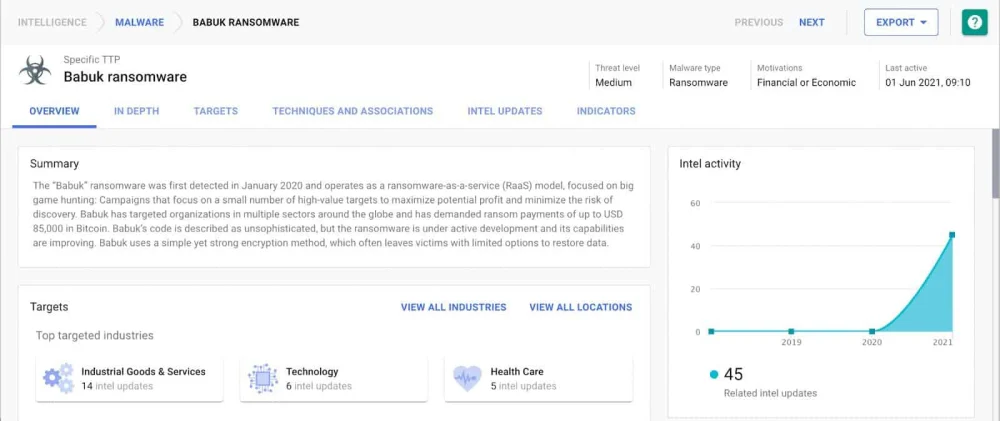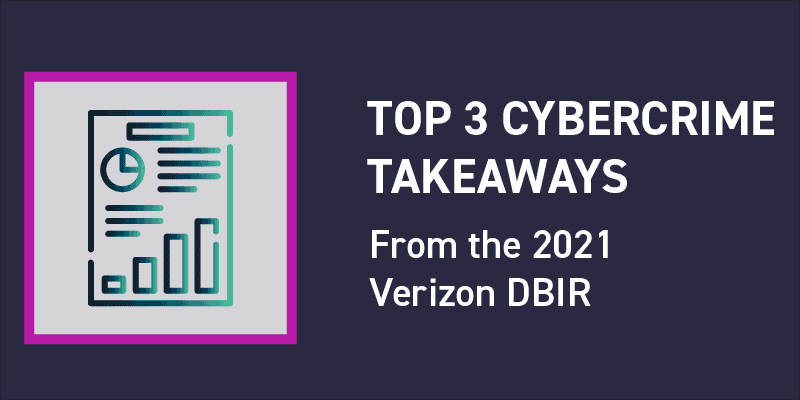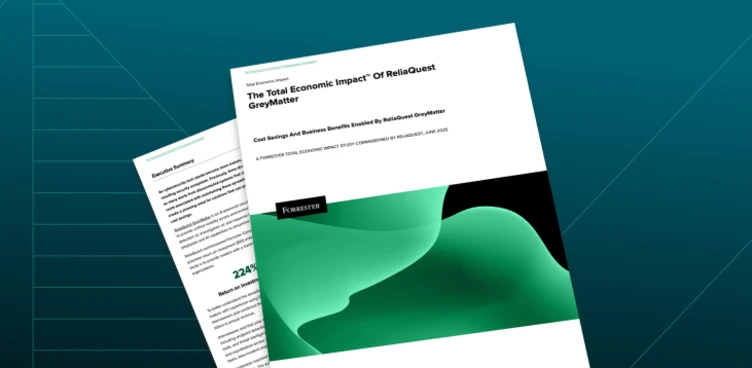The 2021 DBIR is still hot off the press, and it did not disappoint. For many years, Verizon’s Data Breach Investigations Report (DBIR) has been one of the most anticipated and well-read reports in the cybersecurity industry. ReliaQuest contributed primary research to the DBIR for a third consecutive year. While we’ve written about the DBIR’s key findings in previous years, I wanted to pull out some of the findings specific to cybercrime.
The Top Three Findings for 2021:
Ransomware increasingly a leading cause of breaches
Approximately 25% of breaches involve the use of stolen credentials
Payment card and banking account information-related terms trending on the dark web
Ransomware increasingly a leading cause of breaches
When looking at the most popular causes of breaches, the leading candidate for this year’s DBIR—as always—is phishing campaigns. No surprises there. Where we did see big changes was in ransomware as a leading cause of data breaches, which doubled in frequency from last year’s analysis.
“ The major change this year with regard to action types was Ransomware coming out like a champ and grabbing the third place in breaches (appearing in 10% of them, more than doubling its frequency from last year).”— Verizon DBIR 2021
This massive increase in ransomware activity certainly aligns with our research and reporting at ReliaQuest. Since January 2020, the Photon Research team has reported more than 2,400 new ransomware victims. Our threat intelligence articles covering the exploits and IOCs and MITRE techniques of DarkSide, Egregor, as well as our Q1 Ransomware analysis have received tens of thousands of page views.

An example of a ransomware profile in ReliaQuest GreyMatter DRP with increased activity
However, it goes far beyond analyzing new ransomware variants and their respective data dump sites. Underpinning this trend is a whole ecosystem of cybercriminal support services. For example, Photon’s research, Excess of Access, analyzed the different types of accesses listed for sale and found that RDP was the most common. What’s RDP access useful for? Yup, you guessed it–ransomware.
If you are interested in getting the latest updates on ransomware threat actors and their victims, including MITRE techniques and exportable list of IOCs, sign up for a demo request of ReliaQuest GreyMatter DRP where you can access all of our finished intelligence.
25% of breaches involve the Use of Stolen Credentials
According to this year’s DBIR, 25% of breaches involve the use of stolen credentials. Furthermore, the DBIR states that targeting of Desktop Sharing has increased. In those cases, 89% involved some sort of credential abuse, whether that is use of stolen credentials or the brute forcing of credentials.
Since January 2021, we have discovered more than 400 datasets with usernames and passwords circulating online, the number of exposed credentials found by the Photon research team is staggering. This has brought our repository of exposed passwords to a total of more than 24 billion unique entries.
Such is the rate of increase of exposed credentials, we have introduced new validation options to help security teams deal with the increased noise.
Financial Industry assets emerge as a Top Result on the dark web
One thing that the DBIR does most years is to track the popularity of certain items across criminal forums and marketplaces (phrases like SSN, dumps, cvv) that might be indicative of cybercriminals selling on stolen data. For 2021, the top terms included “bank”, “bins”, “bank identification number”, “card”, and “cvv”, suggesting a continuation of financially-motivated cybercrime and popular market for bank customer PII.
“The two most common cybercrime terms found on criminal forums are bank account and credit card related.”— Verizon DBIR 2021
The dark web sales for banking account details and credit card information is not new news. We wrote about carding forums and threats to the financial services industry in 2015, 2016 respectively. Heightened supply and demand on the dark web means higher circulation, meaning time to detection and remediation of exposed BIN numbers and payment card information is critical this year more than ever. ReliaQuest has a history of alerting our banking clients to their exposure in near real-time and enabling quick remediation from temporary disabling of customer accounts to launching takedowns of postings.







